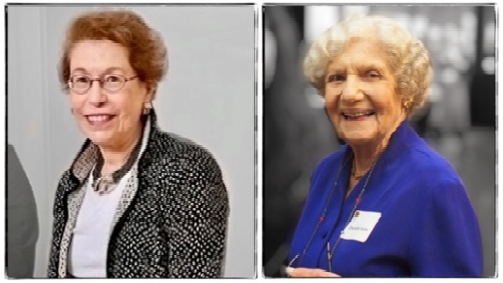Reparative Adaptation After Brain Injury Facilitated by Psychoanalytic Psychotherapy
NPAP Summer CE Series
Please note – this event is not hosted by the Neuropsychoanalysis Association. For any questions regarding registration please contact Thomas Taylor at: tstaylor421@gmail.com
Presenters:
Mary Edlow, PhD
& Charlotte Kahn, PhD
Discussant:
Maggie Zellner, PhD
Moderator:
Tom Taylor, S.T.M., LCSW-R, PhD
3:30pm-5pm (EDT)
Click here for further information and to register.
This preliminary qualitative study suggests that the synergy of psychoanalysis, neuroplasticity, and the homeostatic imperative enabled brain-injured patients, an underserved population, to achieve what we have termed a “reparative adaptation,” meaning the ability to maintain a sense of self and to move forward with creativity and flexibility. A review of clinical case reports of the treatment of patients with brain injury was conducted, providing evidence that a neuropsychoanalytic perspective can address not only the cognitive and behavioral results of brain injury but also the psychological challenges.
Bios:
Dr. Mary Edlow holds a Masters Degree from Columbia University and a PhD from New York University. She earned a certificate in psychoanalysis at NPAP where she is on the permanent faculty and where she has also served as an active member of the Edith Laufer Neuropsychoanalytic Clinical Study Center for the past 20 years.
In 1953, when Dr. Charlotte Kahn was earning a masters in counseling psychology at Columbia University, she became interested in psychoanalysis but at that time only candidates with medical degrees were admitted to psychoanalytic institutes. To her good fortune, a new program at NPAP had emerged that welcomed non-medical applicants, provided they had a masters degree. So began a long and illustrious career that is chronicled in her book, “Undeterred, I Made it In America.”
Drs Edlow and Kahn co-authored “Reparative Adaptation After Brain Injury Facilitated by Psychoanalytic Psychotherapy”, recently published in Neuropsychoanalysis.
Dr. Maggie Zellner’s special niche is teaching neuroscience to the psychodynamically-minded – making our current understanding of the brain intelligible to those who deal daily with the human mind, or who are just curious about the machinery underlying their own mental and emotional experience. She is a member of NPAP and an adjunct faculty member at The Rockefeller University. She is also editor of Neuropsychoanalysis, an interdisciplinary journal for psychoanalysis and the neurosciences.
